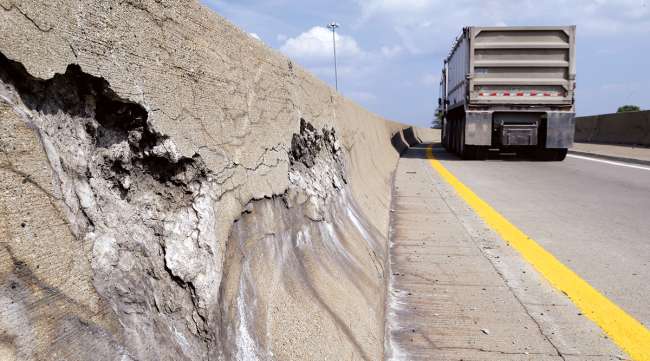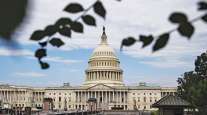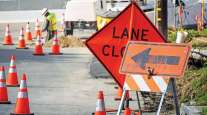Senior Reporter
Senators Push Bill to Rebuild Deficient Bridges

[Stay on top of transportation news: Get TTNews in your inbox.]
Infrastructure experts have determined that thousands of bridges nationwide require either minor repairs or major rehabilitations. A group of lawmakers in Congress is acknowledging the experts and looking to do something about it.
This month, New Hampshire Sen. Jeanne Shaheen (D) led the introduction of legislation designed to fund repairs or assist in replacing deficient bridges across the country.

Shaheen
The Strengthen and Fortify Existing (SAFE) Bridges Act would specifically approve $2.75 billion per year through fiscal 2025 for agencies tasked with fixing and maintaining bridges.
Shaheen’s co-sponsors include fellow New Hampshire Democrat Sen. Maggie Hassan, Democratic Sens. Sheldon Whitehouse of Rhode Island, Bob Casey of Pennsylvania, and Maine independent Sen. Angus King.
“Both the president and members of Congress from both parties have spoken about the need to rehabilitate our aging infrastructure; this bill presents an opportunity to begin to make good on that pledge,” Shaheen said June 4. “As bridges in New Hampshire and across the country continue to crumble from disrepair, the need for bipartisan cooperation has never been more urgent. Continued neglect poses significant public safety risks and jeopardizes our economy.”
The legislation, which awaits consideration in a committee, would determine funding levels based on states’ share of deficient bridges. A companion bill was introduced in the U.S. House of Representatives by Rhode Island Rep. Jim Langevin (D).

Langevin
“Increased federal support is desperately needed if we are to finally address the poor condition of our bridges,” Langevin said June 5. “My [legislation] will provide Rhode Island with the resources it needs to address this urgent public safety issue.”
The bills’ backers cited a report by the American Road and Transportation Builders Association determining that 47,052 of the country’s 616,087 bridges are structurally deficient.
For instance, 224, or 9%, of the bridges in New Hampshire are structurally deficient, meaning certain structural aspects are in poor condition. The Granite State has determined 2,444 of its bridges require repairs at a cost of about $3.7 billion.
“In New Hampshire and across the country, pedestrians and cars are traveling over bridges that have been weakened by age or overuse, which threatens public safety and hurts our economy,” Hassan said.
In Rhode Island, 180 of the state’s 780 bridges are structurally deficient, which comes out to 23.1%. The Ocean State identified repair needs on 721 bridges at a cost of about $1.8 billion. “It’s long past time we clear The Ocean State’s backlog of crumbling bridges to protect the public’s safety and create good jobs in the process,” Whitehouse said.
States with the highest number of structurally deficient bridges are Iowa, Pennsylvania and Oklahoma, according to the ARTBA report.

Black
“America’s bridge network is outdated, underfunded and in urgent need of modernization. State and local governments just haven’t been given the necessary resources to get the job done,” said Alison Premo Black, ARTBA’s chief economist.
ARTBA’s findings, as well as other studies often are cited by congressional transportation leaders who have expressed interest in taking up surface transportation policy legislation in the coming months. The authorization of a 2015 highway law expires in the fall of 2020.
In May, House Democratic leaders sought to collaborate with President Donald Trump on a $2 trillion infrastructure measure. Negotiations between Speaker Nancy Pelosi’s leadership caucus and the White House collapsed May 22 after Trump criticized House committees’ investigations into his 2016 presidential campaign.
Trump would often mention infrastructure policy as a legislative priority. His 10-year, $1.5 trillion infrastructure plan did not advance in the Republican-led House and Senate last year. Trump’s plan sought significant contributions from nonfederal agencies and private investors.




